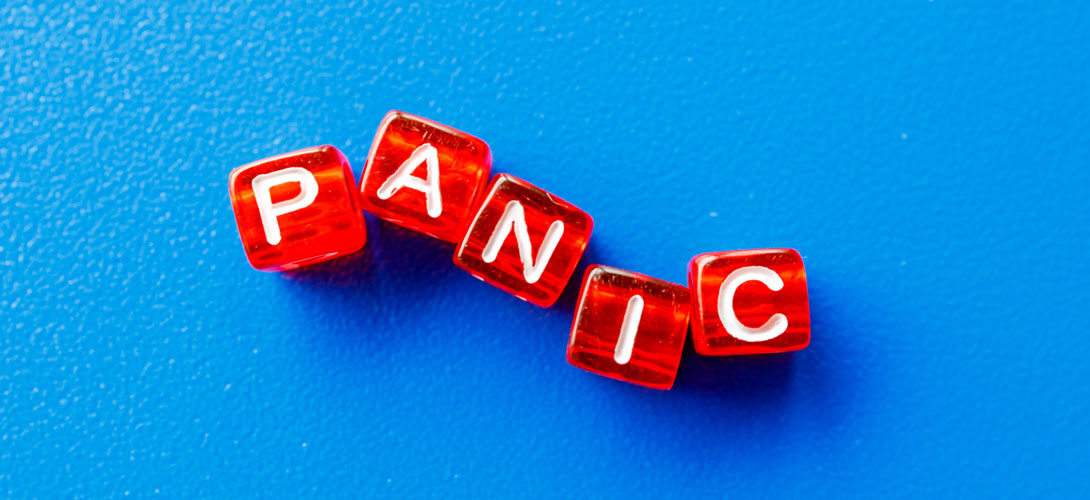
A panic attack is a sudden episode of fear that can trigger intense physical reactions. Panic attacks can happen anywhere or at any time - often without warning
Signs of a panic attack include:
- A rapid, pounding heart rate
- Feeling hot or sweaty
- Trembling
- Feeling like you can’t breathe
- Feeling dizzy, faint or sick
- Pain in your stomach or chest
- Headache
- Feeling like things around you are weird and disconnected
Most panic attacks aren’t caused by actual danger. They usually end within 30 minutes, and tend to peak after a few minutes.
What causes a panic attack?
Although there isn’t always a clear reason for a panic attack, there are some things that can make us more likely to experience them:
- Anxiety and panic disorders
- Feeling nervous or anxious in social situations
- Difficult experiences or memories
- Stress about family problems or exams
- Grieving the death of a loved one
What should I do if I have a panic attack?
- Focus on your breathing. Breathe in through your nose slowly while counting to five, then breathe out through your mouth slowly while counting to five. Keep doing this for as long as you need to.
- Stay in the moment. Stay where you are and focus on what’s around you. Naming the things you can see, hear or touch in this moment can help.
- Move a little. Some easy physical activity, like jumping up and down or walking on the spot, can help you cope. Make sure you stay focused on your breathing though.
- Remember that you will feel better. Tell yourself that the panic attack isn’t in control – you are.
- Tell someone what happened. Talking to a parent, good friend, teacher or another person you trust can really help, as it gives you a chance to explain your feelings.
When should I seek help?
It’s a good idea to speak to someone you trust after any panic attack. However, if you start having panic attacks frequently, it might be time to speak to a guidance counsellor, therapist or doctor.
How can I reduce panic attacks?
It might be hard to completely avoid panic attacks, but some lifestyle changes may help:
- Eat healthily and avoid having too much caffeine
- Get regular exercise
- Get enough sleep
- Talk to people about how you’re feeling
- Practice breathing exercises for a few minutes every day
How can I help someone who is having a panic attack?
- Speak calmly, remind them that they are safe and that it will be over soon.
- Ask if they need anything. The person might not be able to answer you, but the question can help them feel supported.
- Help them to breathe calmly and slowly, as demonstrated above.
- Talk to them about something trivial, like a TV show or funny story, to distract them until the moment passes.
- Make sure they’re okay afterwards. Take them somewhere quiet and get them a glass of water. Try to stay with them until they feel better.
There are dozens of apps available to help you develop a regular mindfulness routine. Our top recommendations are:
- Simple Habit (free)
- Headspace (some exercises are free)
- Stop, Breathe, Think (for children aged 5-10)
Whenever you need to talk, Childline is ready to listen. Call 1800 66 66 66, send a text to 50101 or chat online at Childline.ie, 24 hours a day, every day.
For more information on topics like this, check out the following articles:
Anxiety creeping upon you? 5 tips on how to reframe anxious thoughts


